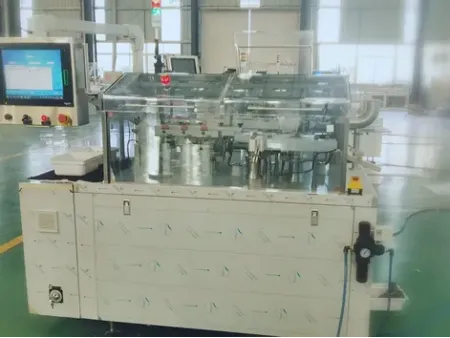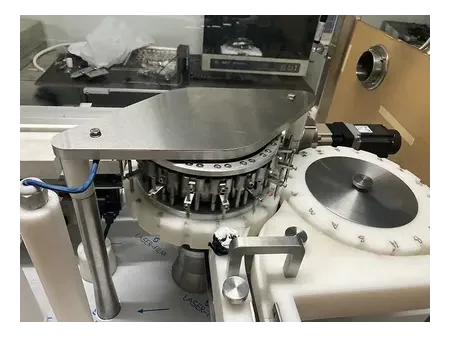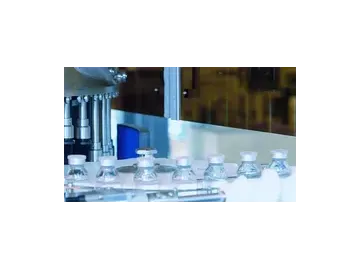Prefilled Syringe Leak Testing Machine
JLYZ Container Closure Integrity Testing (CCIT)
- Speed: 400pcs/min
- Applicable container: 1-3ml pre-filled syringes
- Detection accuracy: ≥0.5μm
- Power: 1.5kW
- Voltage: AC 380V, 50Hz
- Worktable height: 900±25mm
- Machine dimensions (L×W×H): 1810×900×1840mm
- Adopts high-voltage discharge technology for leak detection
- Detects cracks as small as 0.5μm, handling up to 400 units per minute
- Complies with FDA 21 CFR Part 11 for system validation and audit trail
- Integrates top-tier components from well-known international brands like Mitsubishi
- Equipped with a user-friendly HMI for traceable operations and data logging
Suitable for leak testing for prefilled syringes; focuses on identifying micro-holes and cracks in the barrel, especially around joint lines and the plunger area. This leak tester is also suitable for prefilled syringes and other injectable containers that require high-sensitivity CCI (Container Closure Integrity) evaluation. The testing process ensures thorough inspection of both the sealing zones and the syringe body without compromising the contents or packaging.
- Can be seamlessly integrated into production lines for fully automated, inline inspection of individual containers
- Detects ultra-fine cracks and micro-leaks that conventional testing methods often miss, ensuring higher sensitivity and reliability
- Operates with low energy and brief exposure time, keeping compliant containers in an insulated state during inspection. The applied voltage does not affect the liquid content, enabling non-destructive testing for both the container and its contents
- No direct contact occurs between the electrodes and the pharmaceutical product, eliminating any risk of contamination
- Supports fast and easy format changes, allowing compatibility with various syringe sizes and configurations using a single unit
- Equipped with an intuitive touchscreen HMI that offers robust functionality including control, real-time monitoring, data collection, and printout capabilities
- Full validation standards are available to comply with Good Manufacturing Practice (GMP) requirements
- Backed by multiple authorized patents and strong technical support for continued performance and innovation.
Prefilled syringes are first aligned onto the feed screw via a dedicated transport track. A rotary mechanism then positions each syringe accurately for inspection across multiple stations. Each point uses high-voltage discharge technology to evaluate specific sections of the syringe, such as the body, flange, and tip, according to user-defined parameters. Once inspection is complete, a rejection wheel automatically separates defective syringes from those that pass the leak test.
How does HVLD technology work in leak testing?
High Voltage Leak Detection (HVLD) operates by measuring conductivity changes when a defect is present. If a leak exists, resistance in the testing path drops, allowing a higher current to flow. This current is then evaluated against a defined threshold to determine if the syringe is compromised. The entire process is deterministic and non-destructive, making it ideal for pharmaceutical packaging integrity.
What advantages does a leak tester offer for prefilled syringe production?
Integrating an HVLD-based tester in the production line ensures that each prefilled syringe meets safety and compliance requirements. It eliminates the risks associated with manual inspection, reduces waste from destructive testing, and minimizes the chances of product recalls. Ultimately, it helps pharmaceutical companies deliver safe, precisely dosed medications to patients.
Is the leak inspection process safe for both the syringe and its contents?
Yes, the testing system uses low-energy pulses and brief exposure times, keeping qualified syringes insulated during inspection. Since the voltage does not come into direct contact with the liquid and has no chemical or physical impact, the process preserves both container integrity and product safety.




